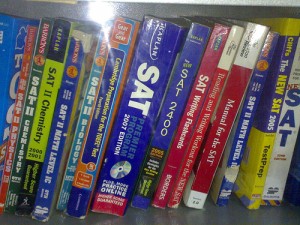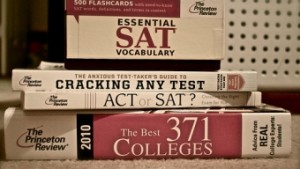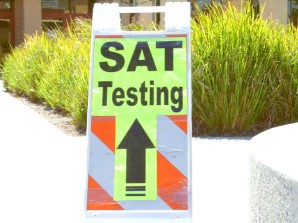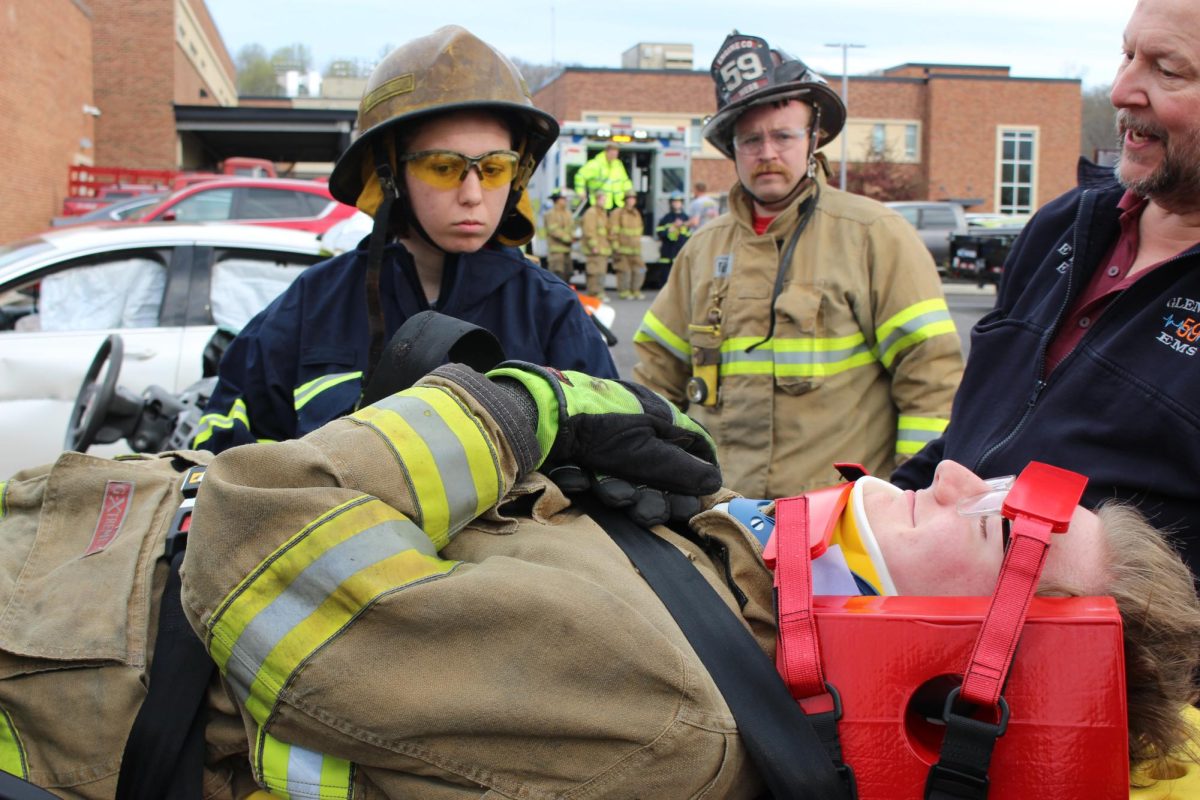The College Board has decided that it is time to adjust the SATs, the standardized test that many high school students stress about.
Not only will the exam return to a 1600-point grading system, but the content will also be altered. A major change will be made in the vocabulary section. The College Board will remove some of the “impossible” words in exchange for words that students have a greater chance of seeing in college, their careers and everyday life. While students look forward to the modified vocabulary, the concern of what the new content will contain remains in teachers minds. English teacher Erica Littleton reviews frequently occurring vocabulary in her classes through works of literature.
“All of our vocabulary comes from literature so to me that is realistic because it’s in the books that we read,” said Littleton. “I think the question that I would ask at this point is what is realistic vocabulary, and if the words that we’re teaching are in works of literature, why is that not realistic?”
Students are also questioning the purpose of the altercations that may make the section easier. A wide range of vocabulary allows one to possibly be respected, impress or even represent a school in a certain way. Junior Amie Larum has taken the SATs and sees the vocabulary as feasible.
“I don’t think [the difficulty in vocabulary] is unnecessary,” said Larum. “I think it’s important that we have an understanding of vocabulary.”
At Susquehannock, measures are taken to prepare students for the difficulty of the SAT questions; however, students at other schools may not be as fortunate.

The purpose for the dramatic change has been stated by the College Board to place less value on studying new information and focus more attention on what students have been learning in classrooms throughout their years of schooling. According to Uptown Magazine, David Coleman, the College Board’s president gave a speech in Austin, Texas to address remaining concerns.
“It is time for an admissions assessment that makes it clear that the road to success is not last-minute tricks or cramming, but the learning students do over years,” said Coleman .“[The SAT] will no longer stand apart from . . . daily studies and learning.”
Vocabulary will not be the only section of the test drastically changing; the writing section will become optional. Many colleges have not required a writing score on the students’ applications; therefore, the College Board has decided to give students the choice of whether or not to even include an essay in their exam. With much anxiety placed on the reading, vocabulary and math sections, many are left with the question of if students will feel any motivation to attempt the essay.
“I do understand the idea of going back to the old 1600 point score because that’s what people knew and understood for decades,” said Littleton. “I don’t understand why the writing would be optional because then who would do the essay?…what would be the incentive for anyone to do the essay?”
The College Board will additionally be teaming up with the nonprofit organization Khan Academy to provide free test preparation students. For years, the College Board has seen correlations between a family’s income and their child’s test scores. Parents have begun to set aside money to pay for strategies that will provide their child with a desirable score. Some strategies have included SAT preparation tutors, an SAT class held at a local college or books and flashcards loaded with examples of exam questions. The free test prep is intended to end the limitations that are set on less financially fortunate students.

“If you pay to take a SAT prep class, I think your scores will definitely improve a lot compared to just going online and using free questions,” said Larum. [“With free test prep] students won’t have to worry about the financial aspect of it.”
Even though the College Board has stated that these changes have the best interest for students, there are speculations that the drive to alter the exam comes from the desire to compete with another popular standardized test, the ACTs. Depending on the university, students may be required to take the ACTs; however, many students take the exam because the writing portion is recommended but not required, and it is shorter. Other students take the ACTs because of the possibility of showing their range of knowledge.
“I am going to be taking the ACTs too because I think I should take as many standardized tests as I can to show colleges what I know,” said Larum.
For every student that chooses to take the ACTs over the SATs, the College Board loses money; therefore, many believe it is a corporation competition and a desire for money that drives the modifications of the SATs.

Whether or not the modifications help the SATs gain popularity will not be known until 2016. The current freshmen class will be juniors in 2016, making them the first to take the new SATs. While some freshmen may be excited for the more realistic vocab, optional writing and free test preparation, freshman Vance Zoeltsch believes the changes that affect the exam’s difficulty can’t be too severe.
“It is the SATs, standardized testing, they should have some sort of difficult aspects to it,” said Zoeltsch. “The more realistic vocabulary is definitely a bonus, but they really need to make it rigorous enough to test out the higher part of the academic population.”
Even being years away from the exam and college, freshmen are already thinking about how the new SATs will look on their application.
“At least the advanced classes are [thinking about college.] Possibly because it’s the next level of SATs it will give us an advantage,” said Zoeltsch. “With us being the first year guinea pigs maybe it will help us stand out to colleges.”
Whether it gives students an advantage or levels out the playing field, the modified SATs will begin in 2016 and the College Board will be eager to analyze the results.












